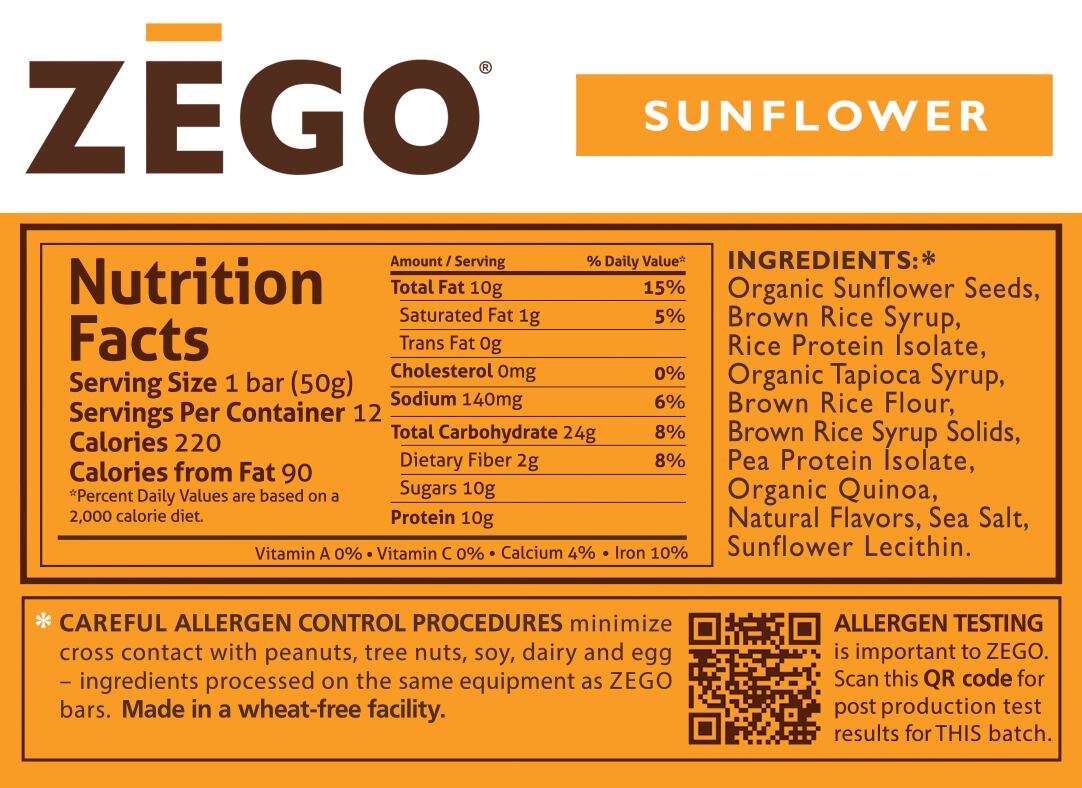Zego co-founder Colleen Kavanagh said the smart packaging better informs consumers and empowers them with in-depth information about their snacks.
“The Zego QR code allows consumers to have better control over their food safety,” she said. “Knowing a ‘gluten-free’ product’s testing showed less than 2.5 PPM gluten compared to the FDA’s allowed 20 PPM enables very sensitive people to make safer choices; this is even more important for those with peanut or dairy allergies, who may choose to eat foods with allergen disclaimers.”

Allergen scanning
Zego touts the content of its sunflower-based bars as allergen friendly; the brand shuns the eight top food allergens, including nuts, soy, dairy, and gluten. Zapping the code with a QR-enabled smartphone or other portable device enables the consumer to peek at allergen tests from the bar’s batch, to see if the snacks showed any measurable amounts of the allergens.
While the bar formulation avoids the “big eight” allergens, the bars are manufactured in a shared production facility. While the company reportedly follows strict, careful control protocols, cross contamination is a remote possibility.
Consumer power
Jonathan Shambroom, another Zego cofounder, said the QR code capability also can give Zego and other food companies valuable consumer feedback.
“Providing real-time data via a QR code not only informs and empowers purchasing choices, it also provides a mechanism for feedback, so consumers can tell manufacturers what matters most to them, and manufacturers can respond,” he said.
The allergen-reporting QR code is a voluntary practice. However, Shambroom said he hopes it spreads to other companies.
“While sample testing is not a safety guarantee, our rigorous testing, transparency, and direct communication via our packaging will hopefully become the industry standard,” he said.
